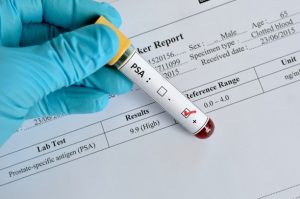Study: Cancer not the result of bad luck mutations

October 27, 2016 by Medigroup

There is no denying that among diseases, cancer may have the largest collective impact. Each year, millions of people across the globe are diagnosed with a form of cancer. In the U.S. alone, the rate of new cancer cases is 454.8 per 100,000 men and women, according to the National Institutes of Health.
Despite that impact, a U.S. Congressional report from mid-2015 noted that cancer research is still very much in its infancy. And as part of that, we still struggle with fundamental understanding of the disease and its greater effects. Just recently, a new study from the Netherlands’ University Medical Center Utrecht has once again shifted our most basic understanding of cancer.
“Cancer isn’t just the result of bad luck, according to a new study.”
Rethinking cancer
The breakthrough from the Netherlands team is based on a different study, one published in the January 2015 edition of the journal Science. In that previous study, a group of researchers found that most cancers are simply the result of “bad luck.” That is, two-thirds of cancer are due to random mutations in DNA and cellular division. The remaining one-third, then, are connected to a person’s diet and lifestyle. That so-called bad lucks include bone, ovarian, pancreatic and 18 other of the total 31 types of cancer.
The Netherlands team, led by Dr. Ruben van Boxtel, instead found that the bad luck element of a cancer diagnosis isn’t nearly as prevalent as the other team noted. Instead, as van Boxtel and his colleagues outlined in a recent edition of the journal Nature, these mutations have much more to do with diet, lifestyle and other factors.
To get a better understanding of the role of “bad luck” in cancer diagnoses, the Netherlands team looked at donated stem cells from people between the ages of 3 and 87. The samples were taken from several different organs or body parts, including the colon, small intestine and liver.
After thorough analysis, van Boxtel and company noted that despite varying ages between patients, there was a steady average of 40 mutations within the stem cells per year. In an accompanying press release, van Boxtel explained this demonstrates that because the mutation rate is so constant, the element of bad luck isn’t likely too much all that significant of an impact.
He added, “This suggests that simply the gradual accumulation of more and more ‘bad luck’ DNA errors over time cannot explain the difference we see in cancer incidence – at least for some cancers.”
However, Dr. Lara Bennett, who works for the organization that funded the Netherlands study, noted that this study could have a more far-reaching impact on cancer research.
“There are several steps you can take to lower the risk of cancer.”
“This new research by Dr. van Boxtel and his group is important because it provides actual measured data on the rate of DNA error accumulation in human stem cells for the first time,” she said.
Finding better outcomes
The Netherlands collective isn’t the only group to poke holes in the original bad luck theory. Another study in Nature published in December 2015 found that the other factors of a cancer diagnosis are far more impactful than bad luck. Namely, that exposure to certain toxins can have a much greater influence. This study, led by geneticist Dr. Bert Vogelstein and biostatistician Cristian Tomasetti, explained that lifestyle changes and regular vaccination can be hugely important to lowering one’s risk for cancer.
Together, both the work of the Netherlands team and Vogelstein andTomasetti demonstrate that people need to make lifestyle changes to better protect their personal health. According to the Mayo Clinic, there are several steps you can take to lower your risk of cancer, including staying physically active, avoiding tobacco products, eating a diet rich in fruits and vegetables, and practicing proper care when outdoors.
Ultimately, regular medical care and checks-ups and constant contact with your physician are crucial to avoiding a cancer diagnosis.















